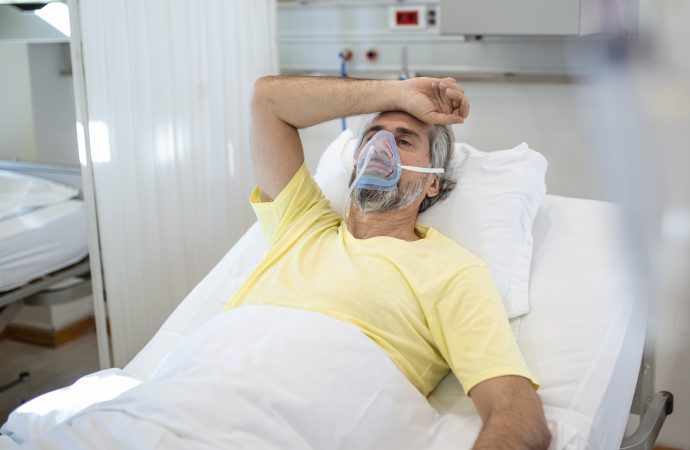Do you struggle to use your CPAP machine consistently? Are you tired of feeling exhausted and drained despite using it every night? It may surprise you to learn that the key to improving your CPAP experience could lie in your biological clock. Our bodies have a natural rhythm, known as the circadian rhythm, which plays
Do you struggle to use your CPAP machine consistently? Are you tired of feeling exhausted and drained despite using it every night? It may surprise you to learn that the key to improving your CPAP experience could lie in your biological clock. Our bodies have a natural rhythm, known as the circadian rhythm, which plays a crucial role in regulating our sleep patterns and bodily functions. In this blog post, we’ll explore the fascinating connection between your biological clock and CPAP struggles – and how understanding this link can help you achieve better quality sleep and improved overall health. So buckle up, because it’s time to dive into what makes our bodies tick!
How CPAP Impacts Sleep
There’s a lot of information out there on sleep and CPAP, but it can be hard to know what to believe. With so many conflicting reports, is there anything to gain from understanding how CPAP impacts sleep?
Well, the answer may surprise you. According to some research, CPAP therapy can actually mess with your natural sleep rhythm. In fact, it has been shown to delay the natural sleep cycle by anywhere from one to two hours. This means that people who use CPAP tend to have more trouble falling asleep and staying asleep than those who don’t.
Now why would this be? Researchers aren’t entirely sure, but they suspect that it has something to do with disrupted levels of REM (rapid eye movement) sleep. REM is the stage of sleep where most dreaming takes place. If your CPAP therapy keeps you awake during this important part of the night, it may lead to less restful slumber overall.
So while using CPAP might seem like a good way to get a good night’s sleep, in reality it could end up doing more harm than good. If you’re having trouble getting a decent night’s rest no matter what you do, be sure to talk with your doctor about whether or not CPAP is right for you.
How Your Biological Clock Affects Sleep
When you lie down to go to sleep, your body’s natural rhythm triggers a sequence of events in your brain and body. This process helps you fall asleep and stay asleep.
Your biological clock is a set of internal cues that dictate when you feel sleepy, awake, or energetic. It’s controlled by the way your genes are expressed and can vary from person to person.
The average age for the first signs of sleepiness is around 10 years old, but this can vary depending on a person’s genetics and lifestyle. The time of night that is most conducive to falling asleep (known as your circadian rhythm) also changes throughout the year.
During the winter months, your circadian rhythm is likely to be slower because daylight hours are shorter. This means it will take longer for your brain to signal your body that it’s time to sleep. As a result, you may struggle to fall asleep at night or stay asleep for long periods of time.
Conversely, during the summer months, your circadian rhythm is likely to be faster because daylight hours are longer. This means it will take less time for your brain to signal your body that it’s time to sleep. As a result, you may find it easier to fall asleep at night or stay asleep for longer periods of time.
There are ways that you can adjust your schedule in order to accommodate these changing rhythms: exercises before bedtime can help rev up your energy levels; using an alarm clock that has sunlight
What to Do If CPAP Doesn’t Help You Sleep
If CPAP doesn’t help you sleep, there might be a connection between your biological clock and CPAP struggles. It’s been found that people who struggle to fall asleep through CPAP are more likely to have a later-than-normal bedtime and wake up in the early hours of the morning. This is because their body’s natural sleep rhythm is disrupted by CPAP treatment.
Fortunately, there are several things you can do to try and get better sleep using CPAP. First, make sure you’re using the right type of mask and machine for your individual needs. Second, adjust the pressure setting as needed. Finally, try some relaxation techniques before bedtime to help ease into a sleepy state. If all else fails, see your doctor for further guidance on getting better sleep using CPAP therapy.
Conclusion
For many people, CPAP therapy is a necessary evil. However, the connection between our biological clock and CPAP struggles may not be as clear-cut as we think. For some people, CPAP therapy can wreak havoc on their sleep cycle because it messes with their natural body clock. If you are one of these people and find that your sleep schedule doesn’t coincide with the times you need to wear an mask to breathe through your nose during the night, then you might want to consider trying out a different type of CPAP machine or using a separate device for daytime use instead.

















Leave a Comment
Your email address will not be published. Required fields are marked with *